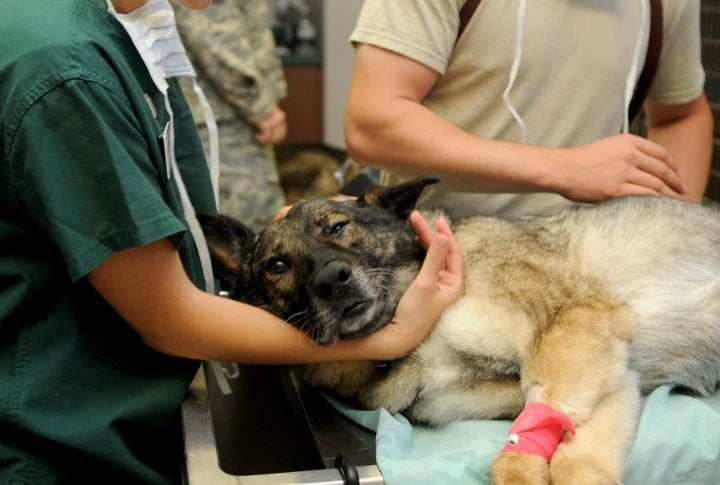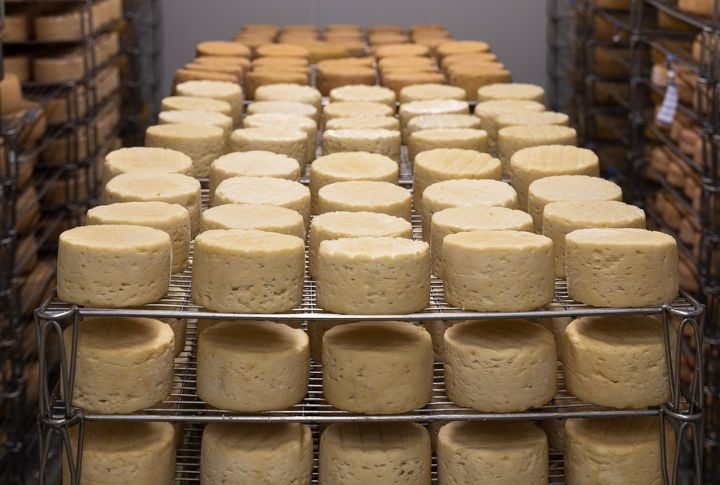Should You Share Cheese With Your Dog?

Your dog watches you intently, eyes locked on the piece of cheese in your hand. That wagging tail, the hopeful gaze—it’s hard to resist. But before you share, have you ever wondered if cheese suits dogs? Some pups handle it just fine, while others have an upset stomach. Keep swiping to know more.
Benefits Of Feeding Cheese To Your Dog

Cheese provides protein, calcium, vitamins A & B, and essential fatty acids. These nutrients can support your dog’s overall health. Additionally, many dogs find cheese palatable, which makes it sound like a high-reward training treat or a treat to conceal medications.
Potential Risks

Not all dogs can digest lactose, though, which is found in dairy products. Lactose-intolerant dogs may experience flatulence, discomfort, diarrhea, or vomiting after consuming cheese. Monitoring your dog for any sort of ill reactions when introducing cheese into their diet is essential.
High-Fat Content

Cheese is high in fat, and overfeeding can lead to obesity. Research shows pancreatitis risk spikes with sudden, large fatty meals—like a whole block of cheese—rather than gradual intake. Predisposed breeds, including Miniature Schnauzers, face higher risks and should consume cheese cautiously.
Safe Cheese Options

Mozzarella and cottage cheese have low fat and sodium levels but contain moderate lactose, which may not suit all dogs. Aged cheeses like cheddar or parmesan have less lactose and are better for sensitive stomachs. Always opt for plain varieties to minimize health risks.
Cheeses To Avoid

Avoid blue cheeses like Roquefort or Stilton, as they contain roquefortine C, a neurotoxic mycotoxin that leads to tremors, seizures, or even death. Additionally, cheeses with added ingredients like garlic or chives are toxic and should be avoided.
Recognizing Allergic Reactions In Dogs

Some dogs may develop allergic reactions to cheese and show symptoms such as itching or gastrointestinal distress. Contact your vet ASAP if you observe strange behavior or physical signs in your dog after it eats cheese.
Moderation Is Key

Moderation is essential when treating your dog with cheese. While enjoying small quantities can be a delightful occasional pleasure, consuming too much may lead to health concerns. For your dog’s well-being, modify portion sizes according to its size, weight, and health.
Using Cheese As A Training Tool

Cheese, particularly strong-smelling aged varieties like cheddar, can be an effective, high-value training reward. Its bold aroma and taste motivate dogs to learn commands, while milder cheeses like mozzarella may not be as enticing. Choose cheese based on your dog’s preferences and tolerance.
Hiding Medication

Administering medication to dogs can be challenging. Hiding pills in small pieces of cheese can make the process easier and more pleasant for your pet. Ensure the cheese portion is appropriate and doesn’t interfere with the medication’s efficacy.
Signs Of Overconsumption

A little cheese might make your dog’s tail wag, but too much can spell trouble. Upset stomachs and diarrhea can result from overindulgence. If your pup seems out of sorts, skips meals, or isn’t acting like their usual self after eating cheese, it’s time to contact your vet.
Alternatives To Cheese

If your dog is lactose intolerant or you’re seeking healthier options, consider treats like apple slices (without seeds) or specially formulated dog treats. These alternatives can provide variety without compromising your dog’s health.
Consulting Your Veterinarian

Before introducing new foods like cheese into your dog’s diet, it’s wise to consult your veterinarian. They can offer tailored advice considering your dog’s health history, dietary needs, potential food sensitivities, and weight management objectives.
Homemade Cheese Treat Recipes For Dogs

Creating homemade cheese treats allows you to control the ingredients and ensure their safety. Combine low-fat cheese with whole-grain flour and eggs to bake simple biscuits. Always introduce new treats gradually and monitor your dog’s response.
Storing Cheese Safely

The proper storage of cheese is important to prevent spoilage because this can have harmful side effects when consumed. Keep cheese refrigerated and check for mold before serving. Store cheese out of your dog’s reach to prevent accidental consumption.
Can Puppies Eat Cheese?

Puppies produce less lactase as they age, making lactose digestion harder. Even small bite sizes of cheese can cause an upset stomach. If offering cheese as a treat, introduce it slowly and observe your puppy’s response to ensure it doesn’t trigger digestive issues.






